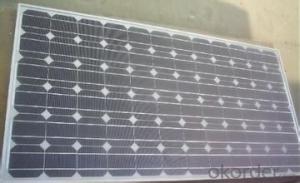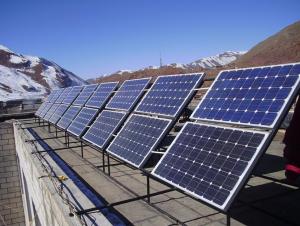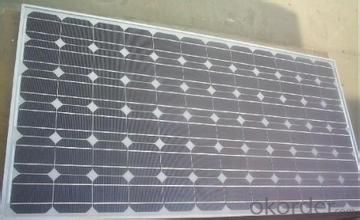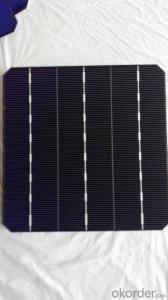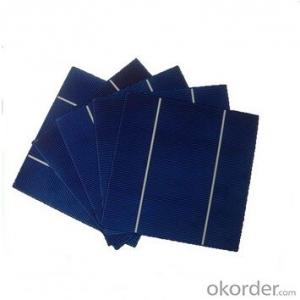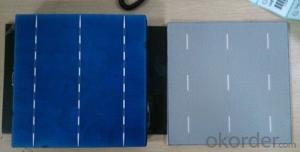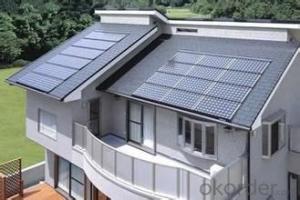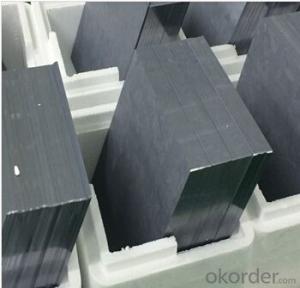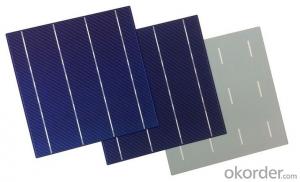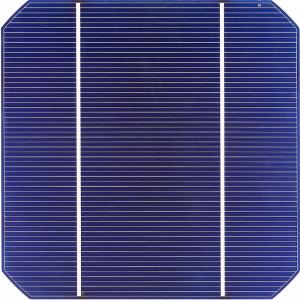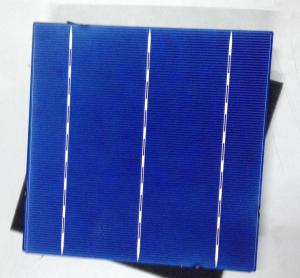Portable Monocrystalline Silicon Solar Cells 156*156
- Loading Port:
- China Main Port
- Payment Terms:
- TT or LC
- Min Order Qty:
- -
- Supply Capability:
- -
OKorder Service Pledge
OKorder Financial Service
You Might Also Like
Quick Detail
| Place of Origin: | Model Number: | SP9H | |||
| Accessories: | Extension Cord | Flexibility: | Foldable | Accessory: | 1*USB-Micro USB cable |
| Certifications: | CE FCC ROHS | Safety protection: | OVP ,ODP ,OCP ,SCP | Total capacity of solar panel: | 5.5V / 6Watts |
| Solar panel quantity: | 2PCS | Max output: | 5V/1A | Folded size: | 178mm x 135mm |
| N.W.: | 320g |
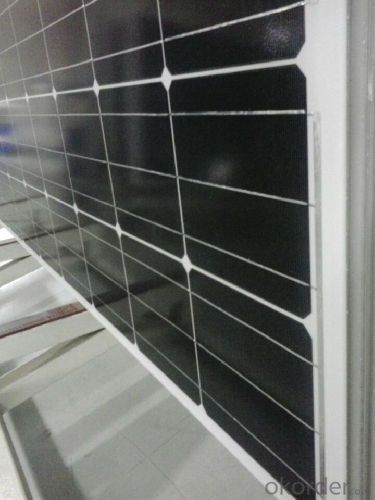
Packaging & Delivery
| Packaging Detail: | Neutral packing or as customer's requirement |
| Delivery Detail: | 5-15work days |
Specifications
1.Fast delivery
2.Portable and directly under the sunshine
3.3.Fold stand, more convenient for sunshine
4.CE .FCC.ROHS
Electrical characteristics include nominal power (PMAX, measured in W), open circuit voltage (VOC), short circuit current (ISC, measured in amperes), maximum power voltage (VMPP), maximum power current (IMPP), peak power, (watt-peak, Wp), and module efficiency (%). Nominal voltage refers to the voltage of the battery that the module is best suited to charge; this is a leftover term from the days when solar modules were only used to charge batteries. The actual voltage output of the module changes as lighting, temperature and load conditions change, so there is never one specific voltage at which the module operates. Nominal voltage allows users, at a glance, to make sure the module is compatible with a given system. Open circuit voltage or VOC is the maximum voltage that the module can produce when not connected to an electrical circuit or system. VOC can be measured with a meter directly on an illuminated module's terminals or on its disconnected cable.
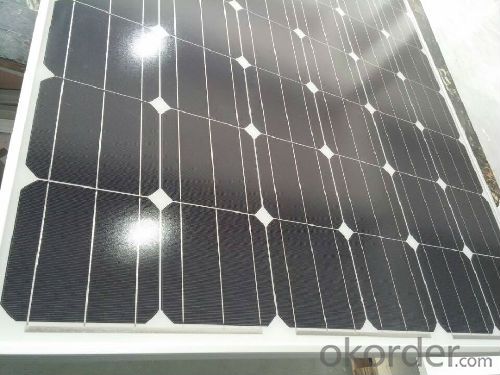
- Q: How many solar cells are there in a solar panel?
- 20?
- Q: What is the solar cells market in China?
- As far as I know, it's developing very well. Not only in terms of the technology but also in terms of the sales revenues. Many solar cells factories are located there
- Q: What is the maintenance required for solar cells?
- The maintenance required for solar cells primarily involves periodic cleaning to ensure maximum sunlight absorption, checking for any damage or debris, and monitoring the performance of the system to address any issues promptly. Additionally, regular inspections and maintenance of other components such as inverters, wiring, and batteries may be required to ensure optimal functioning and longevity of the solar cell system.
- Q: Can solar cells be used in remote locations?
- Yes, solar cells can be used in remote locations. They are an ideal solution for providing electricity to areas that are off the grid or have limited access to traditional power sources. Solar cells can be set up in remote locations to harness the energy from the sun and convert it into electricity, making them a reliable and sustainable option for powering remote areas.
- Q: Can solar cells be used to power street lights?
- Yes, solar cells can be used to power street lights. Solar-powered street lights harness sunlight through solar panels and convert it into electrical energy, which is stored in batteries. This stored energy is then used to power the street lights during the night, eliminating the need for a traditional electrical grid connection. Solar-powered street lights are an eco-friendly and cost-effective solution for illuminating roadways.
- Q: What is the environmental impact of solar cells?
- The environmental impact of solar cells is generally considered to be low. While the production process does generate some greenhouse gas emissions and requires the use of certain materials, such as silicon and metals, the overall emissions and resource consumption are significantly lower compared to fossil fuel-based energy sources. Additionally, solar cells do not generate air or water pollution during operation, making them a cleaner and more sustainable option for generating electricity.
- Q: Can solar cells be used in off-grid applications?
- Yes, solar cells can definitely be used in off-grid applications. Off-grid systems rely on solar energy to generate electricity, making solar cells an ideal and sustainable solution for powering remote locations, cabins, boats, and other off-grid setups. Solar cells capture sunlight and convert it into electrical energy, which can then be stored in batteries for use during periods of low or no sunlight. With advancements in technology, solar cells have become more efficient and affordable, making them a practical choice for off-grid applications.
- Q: Do solar cells require maintenance?
- Yes, solar cells do require some maintenance. Regular cleaning of the solar panels to remove dust, debris, or any shading objects is necessary to ensure optimal sunlight absorption. Additionally, occasional inspection and maintenance of the electrical connections, inverters, and batteries (if present) may be required to ensure efficient and uninterrupted operation.
- Q: Can solar cells be used in large-scale power plants?
- Yes, solar cells can be used in large-scale power plants. In fact, large-scale solar power plants, also known as solar farms or solar parks, are becoming increasingly common as the technology improves and costs decrease. These power plants consist of a large number of solar panels or solar arrays that convert sunlight into electricity on a massive scale.
- Q: Can solar cells be used in agricultural applications?
- Yes, solar cells can be used in agricultural applications. Solar panels can provide a renewable source of energy to power various agricultural processes such as irrigation systems, lighting, and ventilation in greenhouses, as well as powering electric fences and monitoring equipment in farms. Solar energy can help reduce reliance on fossil fuels and provide a sustainable and environmentally friendly solution for powering agricultural operations.
Send your message to us
Portable Monocrystalline Silicon Solar Cells 156*156
- Loading Port:
- China Main Port
- Payment Terms:
- TT or LC
- Min Order Qty:
- -
- Supply Capability:
- -
OKorder Service Pledge
OKorder Financial Service
Similar products
Hot products
Hot Searches
Related keywords
